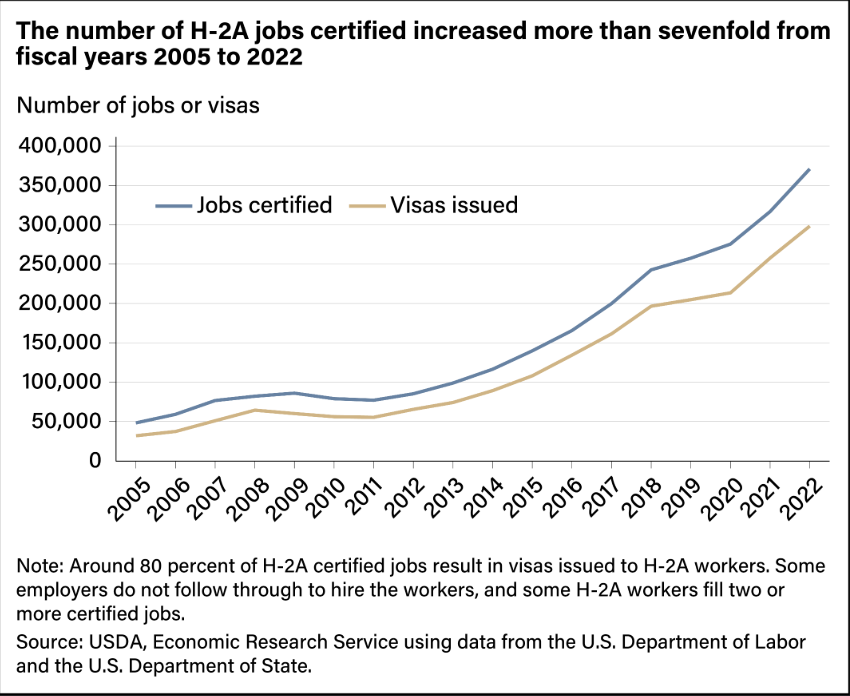
Around two-thirds of American farmworkers are immigrants, many of whom are legally undocumented. As of now, these individuals have played critical roles amongst the agricultural workforce, supporting the production of fruits, vegetables, and other crops that typically supply grocery stores and dinner tables across the country. As President Donald Trump and others call for stricter immigration enforcement, questions are being raised about how such actions could potentially affect the farming economy.
When large-scale deportations occur, farmers can face serious labor shortages. Agriculture, especially in regard to the harvesting of perishable crops such as berries, lettuce and citrus, is highly dependent on timely human labor. Sudden reductions in workforce mean that fields may be left unharvested and crops lost. This potentially leads to financial losses for farmers and ultimately reduced supplies for consumers.
Disruptions such as these are likely to ripple through the greater economy. As worker availability begins to decline, labor costs rise which ultimately push the food prices to rise as well. With this, families may begin to see higher grocery bills and small farms–already under pressure financially–could struggle to generate reasonable profit. Larger farms may begin to invest in automation, but not all tasks can be mechanized, and the technology is typically quite costly and complex.
So far in the agricultural industry, many have begun to express concern about labor availability. Historically, efforts to replace immigrant labor with domestic workers have met limited success. Farm work is physically demanding and largely seasonal which makes it unappealing to many U.S. workers. For this reason, the industry advocates for guest worker programs, such as the H-2A visa–a visa permit that allows foreign laborers to work inside the U.S. under agricultural confines for limited amounts of time. Rather than political conformity, the reaction of many agricultural leaders may be to seek cooperation and empathy with lawmakers. They may need to emphasize a balanced approach–one that ensures border security while also supporting the labor needs in vital sectors such as farming.
America’s food system has always been deeply connected to its immigrant labor force. Policies that affect this workforce–whatever their intent may be–can have wide-reaching effects. Understanding these economic realities is essential for crafting reforms for immigration that support both national interests and everyday livelihoods.
Sources
https://www.bakerinstitute.org/research/feeding-america-how-immigrants-sustain-us-agriculture https://www.newamericaneconomy.org/issues/agriculture/ https://www.agri-pulse.com/articles/19854-the-ripple-effects-of-ags-immigrant-challenges

